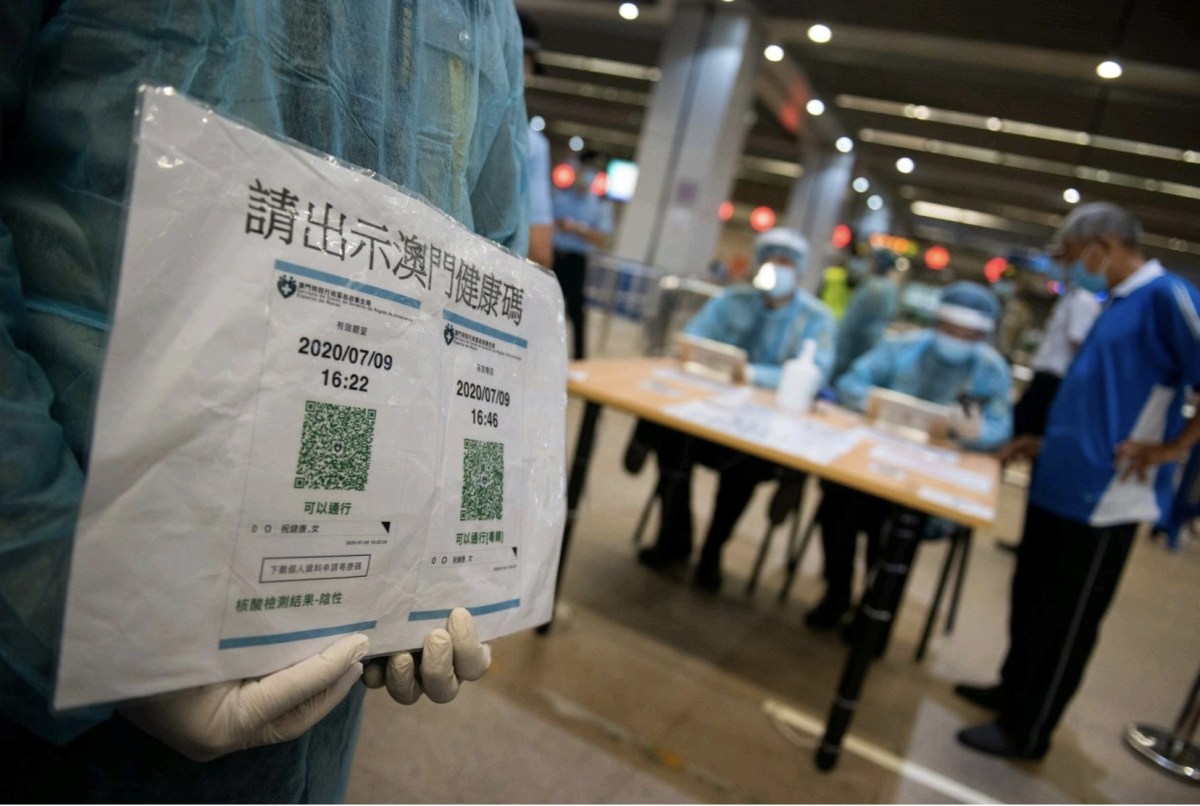[ad_1]
Beijing is trying to extend its vaccine coverage to Chinese people overseas and has launched a health certificate program for Chinese international travelers.
A QR code-based digital certificate, which shows if a person has had a vaccination as well as their virus test results, is available on Chinese social media platform WeChat and was launched on Monday.
These moves were unveiled by cadres in charge of diplomacy and public health who are now attending the ongoing annual parliamentary session.
Foreign Minister Wang Yi promised free jabs for overseas Chinese in an action plan called Operation Spring Seeds. He added at a virtual press briefing earlier this week that Chinese diplomats and medical professionals stationed abroad have been standing by to deliver and administer shots and that detailed arrangements could be drawn up by the end of March.
Wang said the goal would be to help overseas Chinese get inoculated using either homegrown or foreign drugs and that vaccination centers may be set up at Beijing’s embassies and consulates in some countries to serve compatriots.
He also said his ministry had lobbied countries to include overseas Chinese in respective mass immunization programs, based on reciprocal schemes in China to give free jabs to foreign expats.Â
China has an extensive diplomatic network with the highest number of missions and consular corps of any country. At the height of the Covid contagion a year ago when Europe was in the grip of the virus, Beijing reportedly disbursed millions of anti-epidemic packages containing masks, sanitizers, thermometers etc to overseas students and other nationals scattered across Italy, France and the United Kingdom via its diplomats, Chinese clansmen associations and carriers and couriers. Â
It is believed that countries with sizable Chinese diasporas like the United States, the UK, Canada, Australia, South Korea and those in Southeast Asia will be approached by the Chinese Foreign Ministry to ship vaccines.
But deliveries to Chinatowns in those places may be delayed due to some countries’ approval and inspection procedures. Talks with some Western countries are still ongoing, but Beijing may reserve a portion of the big consignments of SinoVac and SinoPharm shots for Southeast Asia where there are large Chinese communities.  Â
Wang has also pitched China as the bastion of free trade and untrammeled exchanges with neighboring countries in a bid to promote China’s health code system. The system has been in use for travelers in China as proof of their travel history and negative virus test results.  Â
Wang also talked up the prospects of the unrestricted cross-boundary flow of people between China and its Asian neighbors that have also flattened their infection curves. He said Beijing would launch in the first half an international version of Covid testing results and vaccination records for Chinese travelers and make health codes recognizable by foreign health and immigration authorities participating in the new initiative.Â
In a separate interview with state broadcaster China Central Television, the foreign minister also sought to steer clear of talk of Beijing launching a rival version to the European Union’s “vaccine passport†scheme that had been discussed by its member states.Â
“[The international health codes and related records] will never be a new type of travel document for those already vaccinated, but is intended to enable travel and spare Chinese and foreign passengers of extra checks or quarantine in China and countries that are keeping the virus at bay and have faith in each other’s vaccination progress,†said Wang.Â
Foreign Ministry spokesperson Zhao Lijian has also fleshed out more details: the codes will be encrypted with keychains to be provided by the Chinese government for verification and accessing information about vaccination records and testing results.
Neither Wang nor Zhao has, however, named any countries ready to sign up to Beijing’s new initiative, but neighbors like Japan and South Korea already had well-rounded travel bubble arrangements in place since last year and they may join.Â
Still, hurdles remain amid the low recognition of and even doubts about the potency of some Chinese vaccines throughout the developed world, particularly after revelations about Sinovac shots’ underwhelming efficacy rate of only 50%, as seen in final-stage human trial data published by some countries.
Another potential moot point is that there is no consensus on how long Chinese vaccines can stay effective and neutralize the Covid pathogen, as that will determine the validity period of international health codes for quarantine-free travel.Â
Suggestions have been made by delegates of the National People’s Congress for Beijing to take the lead and scrap quarantines for arrivals from countries like Indonesia, the Philippines, the United Arab Emirates and others that are rolling out mass vaccinations using Chinese drugs.
NPC deputies say Beijing can also assign health codes for travelers to and from these countries to help them skip layers of health checks when they cross borders.Â
Another drag on Beijing’s drive to open borders is its low vaccine take-up at home.
China is risking being left out of a new international travel and inspection regime based on mass immunization campaigns using shots from the same suppliers or of the same types, when China’s domestic roll-out has stalled. Â
The National Health Commission intimated last week an ambitious plan to play catch-up and inoculate 40% of Chinese people by the end of June. But Gao Fu, the chief of China’s National Center for Disease Control and Prevention, told the China News Service on the sidelines of the parliamentary session that he expected the country’s vaccination rate would not hit the threshold of herd immunity of 70% until after the second quarter of 2022.Â
Read more: QR codes help China fight virus
[ad_2]
Source link













